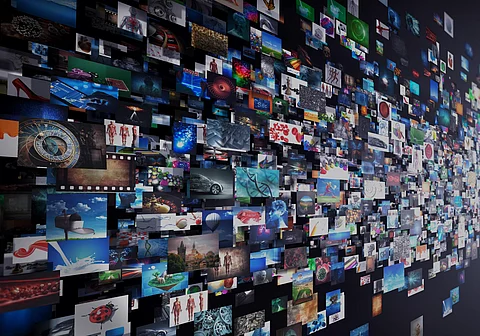

Truth and news are not the same thing— Katharine Graham (former publisher of The Washington Post)
From a young age, many of us are conditioned by our parents and society to believe that following the news is necessary to be an informed and responsible citizen. Since it is followed regularly by the vast majority of people, cutting it out of your life can be seen as a foolish and absurd decision.
But is it really?
Here are six reasons why you should consider quitting the news—or at least seriously limiting the time you spend consuming it.
They are negative and depressing
News content tends to be overwhelmingly negative—and this is no accident. Studies show that negative news grabs our attention more easily and triggers a stronger reaction in the brain. Psychologists refer to this as negative bias: our brains are wired to focus more on negative details than positive ones.
News outlets understand this well and deliberately provide negative content because they know bad news sells better than good—especially when it’s sensationalised and emotionally charged.
However, just because the news rarely highlights positive developments doesn’t mean the world is as bleak as it appears.
A little over 200 years ago, more than 90 percent of the world’s population lived in extreme poverty. Today, that number is below 10 percent. Moreover, the rates of accidents, natural deaths, crimes, wars, and political oppression have significantly decreased worldwide.
While the media often portrays the world as dangerous, the reality is that it has never been safer. Natural disasters (0.1% of all deaths), plane crashes (0.001%), murders (0.7%), and terrorism (0.5%) receive extensive media coverage, yet none of them account for more than 1% of total deaths. Books like Factfulness and Enlightenment Now explore these realities in depth.
News media give little coverage to the positive developments taking place around the world, leaving us with a one-sided and distorted view of reality.
The news is biased
It’s no secret that most major news organisations have political leanings and are often funded by large corporations or, at times, even the government. As a result, bias is inevitable in how news is presented, which can lead to a distortion of truth and facts.
The problem with news on social media
An increasing number of people now receive their news through social media platforms. Facebook and Twitter use algorithms that analyse the type of content you engage with. To keep you on their platforms longer, they show you more of the same kind of content.
This becomes particularly dangerous when it comes to politics, elections, and national issues. If you’re, say, pro-Trump, your feed will primarily contain articles that support your viewpoint, while opposing perspectives are filtered out—leaving you with a skewed and lopsided picture of the world.
Fake news and paid news
The internet has made the spread of fake news more rampant than ever. But fake news isn’t limited to online-only platforms; it can also appear on television and in newspapers—sources we often assume to be more credible.
A sting operation conducted by the organisation Cobrapost in 2018 revealed that many of India’s leading news organisations were willing to accept money in exchange for promoting certain political agendas. The recordings showed that these organisations were even prepared to publish content that could incite communal disharmony or influence elections in favour of a political party—for cash.
Following the news is bad for your mind and body
Fear-driven news puts your body into a stressed, fight-or-flight mode, releasing the stress hormone cortisol, which weakens the immune system. Psychologists note that following the news can even increase unrelated personal worries.
You don’t become informed by following the news
The belief that consuming news makes us informed, responsible citizens is a myth.
With 195 countries and 7.8 billion people on this planet, it seems naive to believe that we can truly understand what’s happening in the world through a filtered and curated news cycle. In truth, we only know what the media chooses to tell us.
And given the amount of misinformation circulating these days, it’s fair to question how truly informed we are. I also struggle to see how merely being aware of someone’s suffering—via the news—amounts to helping them in any real way.
If you’re not in favour of quitting the news altogether, here are a few actionable steps you can take to limit your consumption:
Limit news intake to once a day, and schedule a specific amount of time—then stick to it. (Even 30 minutes a day adds up to 183 hours a year.)
Avoid negative and fear-driven news. It might give you something to talk about, but it’s rarely worth the emotional cost.
Turn off all notifications from news apps on your phone and computer.
Don’t start your day with the news. Wait at least two hours after waking up. Waking up to headlines is a disempowering way to start your day.
Use that extra time to read a good book.
I would argue that most people consume the news in the same way they use social media—not because it adds real value to their lives, but because it’s a habit and, frankly, addictive. Many find it uncomfortable to go even a day without checking the news—just as many struggle to stay away from social media. And the fear of missing out (FOMO) applies to the news as much as it does to anything else.
Following the news is a sure-fire way to program your mind with fear and negativity. It can lead to distorted perspectives about people and the world.
Which is why I believe, when it comes to the news, ignorance is often bliss. So here’s the question I’d like to leave you with:
Why overly concern yourself with the news—when it’s often negative, biased, harmful to your well-being, and sometimes even fake?
Is it really the best use of your time and energy?